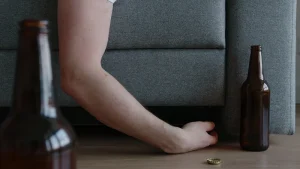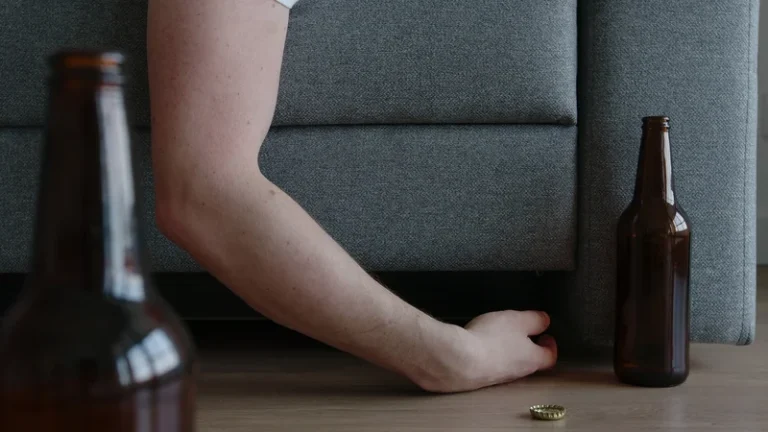
How you think about your relapse is important and can strongly influence the next steps you take. You have a choice to see it as an opportunity to obtain further education and support along the way to long-term recovery rather https://ecosoberhouse.com/ than as a shameful experience or failure. You may also begin to experience a less robust normal release of dopamine in response to natural rewards like eating, exercise, or sex. With the resulting lowered ability to experience pleasure from natural rewards and the brain’s heightened response to drug-related environmental cues, it’s not difficult to see how relapse can occur.
Understanding Why You Might go Back to Rehab
Working at a soup kitchen, volunteering at the local animal shelter, or helping teens and children may all be what makes your life worth living. Cognitive behavioral therapy (CBT) is a mode of therapy commonly used to treat addictions. CBT is very useful when it comes to identifying how a person responds to certain triggers — or people, places and things that fuel their desire to use drugs or alcohol. Learning how to respond differently to these triggers, or how to avoid them in the first place, is something that can be worked on during a return visit to rehab. Given these daunting statistics, newly recovering addicts are encouraged to protect their sobriety by utilizing aftercare support services and 12-step programs. Knowing how to respond if a relapse happens is also incredibly important when it comes to maintaining long-term recovery.
- Finding a place to live after drug rehab is one of the first things you may need to consider as your departure date arrives.
- If the emotional and mental stages of relapse are not corrected, they will lead to the final stage of relapse.
- To keep your recovery on solid footing, you need a positive mental outlook, a strong plan of recovery, and a commitment to keeping your program fresh and vital, one day at a time.
Building A New Social Life

Each day the person continues using makes recovery more difficult. Relapse must be taken seriously, as a return to drug or alcohol abuse can have dangerous — and even deadly — consequences. It’s important to remember that cravings for drugs or alcohol continue long after the detox and withdrawal phases. Long-term aftercare support programs — including 12-step programs and group and individual therapy — are essential parts of long-term sobriety. It could be the case that you need to address an underlying mental illness that was previously undiagnosed or that specific treatments require a longer time to take effect.

Is Going Back to Rehab the Only Option After a Relapse?
To promote accountability, it is important to have regular check-ups with a mental health professional. Check-ups can be as infrequent as four times a year and involve a medical professional conducting exams to check vital signs. Ensuring you are healthy is a start to maintaining a healthy lifestyle. When someone relapses, their addiction is often worse than before. The feelings of shame and guilt further drive the substance abusing behavior in an effort to numb any uncomfortable emotions.
Adjusting Your Treatment Plan Post-Relapse
It is often based on a lifestyle that may include stress and other triggers that lead to drug abuse. Therapies like cognitive behavioral therapy helps the recovering addict understand their underlying issues and address their addiction holistically. Individuals work with therapists to uncover distressing withdrawal symptoms or behaviors. Individual counseling serves a similar purpose, allowing patients to delve deep and uncover why they have certain emotions, or use substances to cope. This is powerful, as patients are connecting with different treatment methods. Exercises like mediation and biofeedback encourage patients to tune in and relax, while acting as a therapeutic outlet.

- Regardless of how you define these terms, a slip increases the risk of a complete relapse.
- Primarily, treatment entails helping you learn how to manage your addiction more effectively so you can maintain your recovery.
- For some, it might be seeing people with whom they previously used.
- If your friends think there is a good reason for you to return to treatment, they may give you a more honest appraisal of your situation.
- Having to return to rehab should not be considered a failure, but rather an act of courage.
No matter the amount of time since your last treatment cycle, All Points North is here to help you build the foundational skills and find the missing pieces to achieve your best outcomes. Whether you’re considering returning to the Lodge or going elsewhere, we want to find the treatment that works best for you. We are happy to discuss our in-house treatment options or coordinate a referral.
Sign up for or manage your WTOP email subscriptions
- If you or a loved one experienced a relapse after a period of sobriety from drugs and alcohol, you can benefit from an addiction treatment program.
- Every treatment cycle after that is a continuation toward recovery.
In the long run, this is beneficial for someone leaving treatment and maintaining sobriety. Relapse statistics show that drug and alcohol relapse is on par with other serious yet manageable illnesses. Compare the rate of relapse from drug recovery to diabetes or hypertension recovery. All three are diseases that must be managed by lifestyle changes, so people often relapse into old habits that can harm their health. You don’t need to tell recruiters or interviewers your entire life story. By law, they can’t ask for personal details, like previous drug or alcohol use, time spent in psychiatrist going back to rehab hospitals or rehab, or other personal details.

The Addiction Blog
Some of these include joining social groups that celebrate sobriety and take actions steps to keep members clean. The sense of accountability can be a healthy reminder for members to cherish their experience in treatment, while honoring their new lifestyle. Another options would be joining churches or getting involved in hobbies that encourage independence as well as positive focus.
Signs That Going Back To Rehab Is A Good Idea
Weddings, business meetings, awards dinners and other events often include drinks or gatherings at places that serve alcohol or where drugs may be obtained. Finding a place to live after drug rehab is one of the first things you may need to consider as your departure date arrives. If you lived with your family before entering rehab, that’s the first place to consider.

The “pink cloud” can also be thought of as looking at life through rose-colored glasses. Going back to rehab doesn’t mean you or your loved one failed. Relapse can happen for a number of reasons and going back to rehab opens the door to improve the recovery plan and take new steps towards sobriety.